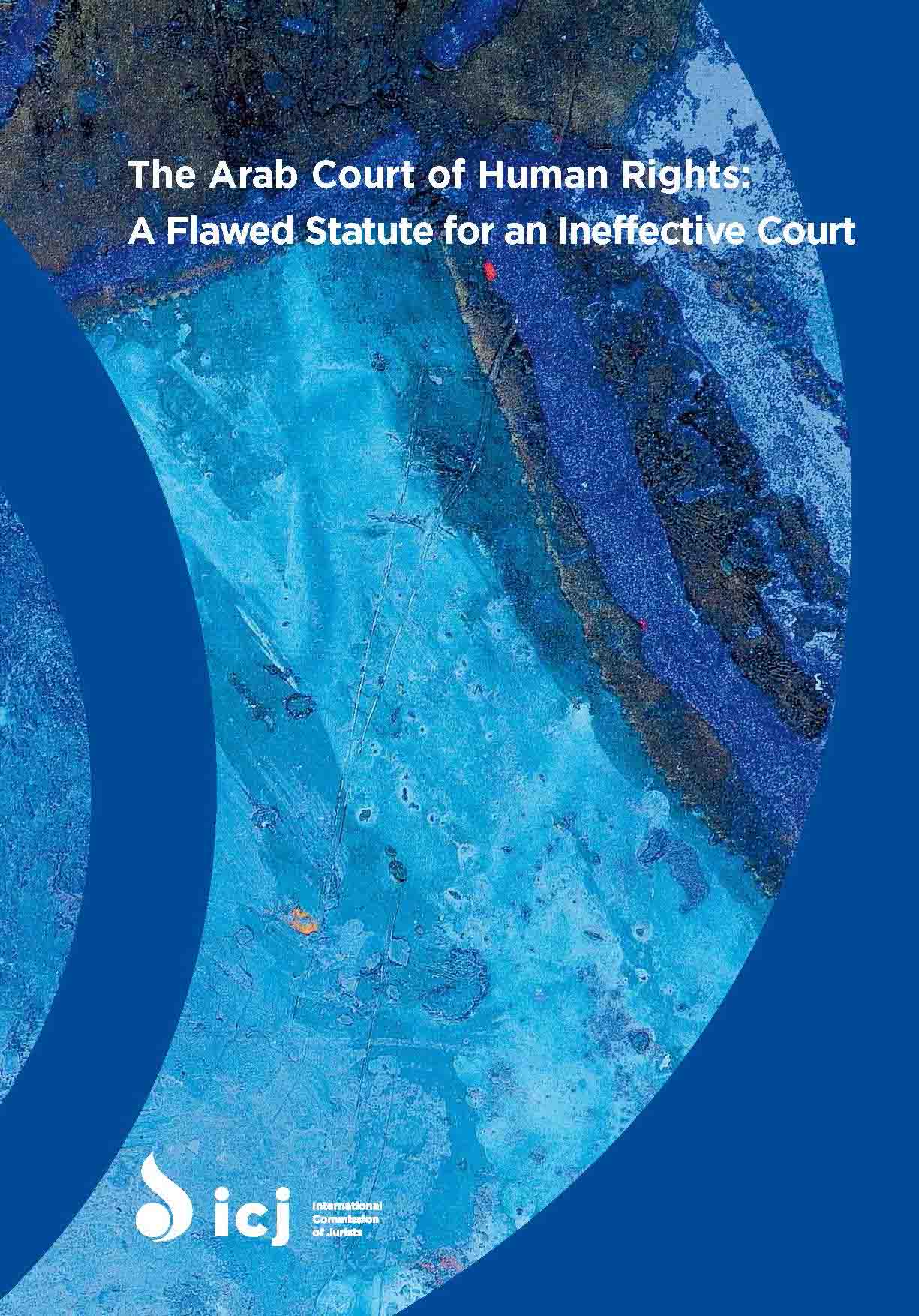The ICJ calls on member States of the League of Arab States (LAS) to refrain from ratifying the Statute of the Arab Court of Human Rights unless and until it is comprehensively amended.
In a report published today, the ICJ highlights numerous failings in the drafting process and the provisions of the Statute that fall short of international standards.
The Statute, approved by the Ministerial Council of the LAS on 7 September 2014, does not permit individuals or groups, including victims of human rights violations, to file a complaint directly with the Court. Only States parties, and NGOs that are both accredited in a State party and are specifically permitted to do so by that State, can bring cases before the Court.
“By denying the right of victims to have direct recourse to the Court, the Statute defeats the very purpose and objective of establishing the Arab Court of Human Rights,” said Said Benarbia, Director of the ICJ’s Middle East and North African Programme. “Amendments to the Statute’s access provisions should be introduced to ensure direct access at a minimum for individuals who allege they have been a victim of a violation of a right within the jurisdiction of the Court.”
Further reforms needed include proper guarantees for the independence and impartiality of the Court and its judges, a requirement for the Court to interpret the Arab Charter of Human Rights consistently with States’ other international law obligations, and for the Court to have broad discretion to decide whether cases are admissible, without the undue restrictions of a strict requirement to exhaust local remedies.
In addition, if the Court is to be effective, it must be able to order interim or provisional measures; to order measures capable of protecting victims, witnesses and other participants in Court proceedings from reprisals; the host State must be required to provide the necessary guarantees for the Court and its staff; and there must be mechanisms to ensure that the Court’s judgments are actually implemented in practice.
“Member States of the LAS must refrain from ratifying the Statute in its current form and should instead launch a transparent and inclusive process to amend the Statute in full accordance with international standards,” Benarbia added. “All stakeholders, including victims of human rights violations and their representatives, civil society organizations, judges, academics and Bar Associations, should be given the opportunity to participate in all stages of the process of establishing the Arab Court, including the reform of the Statute.”
Said Benarbia was speaking at a joint conference of the ICJ and Legal Agenda in Tunis, from 8 to 9 April 2015, bringing experts on international and regional mechanisms and courts, together with judges, lawyers and civil society organizations from LAS member states, to examine the Statute of the Arab Court in light of international standards and experiences.
Contact:
Said Benarbia, ICJ Director of the Middle East and North Africa Programme, e: said.benarbia@icj.org
MENA-Arab Court of Human Rights-Publications-Report-2015-ENG (full report in PDF, English version)
MENA-Arab court of Human Rights-Publications-reports-2015-ARA (full report in PDF, Arabic version)
MENA-Arab Court Report-News-Pressrelease-2015-ARA (full Arabic version of press release in PDF)
MENA-Arab Court Tunis Declaration-Advocacy-2015-ENG (full text in PDF)
MENA-Arab Court Tunis Declaration-Advocacy-2015-ARA (full text in PDF, Arabic)
MENA-Arab Court Speech Monageng-Advocacy-2015-ENG (full text in PDF)
MENA-Arab Court Memo Monageng-Advocacy-2015-ENG (full text in PDF)
MENA-Conference Agenda-News-Event-2015-ENG (full agenda in PDF, English)
MENA-Conference Agenda-News-Event-2015-ARA (full agenda in PDF, Arabic)

